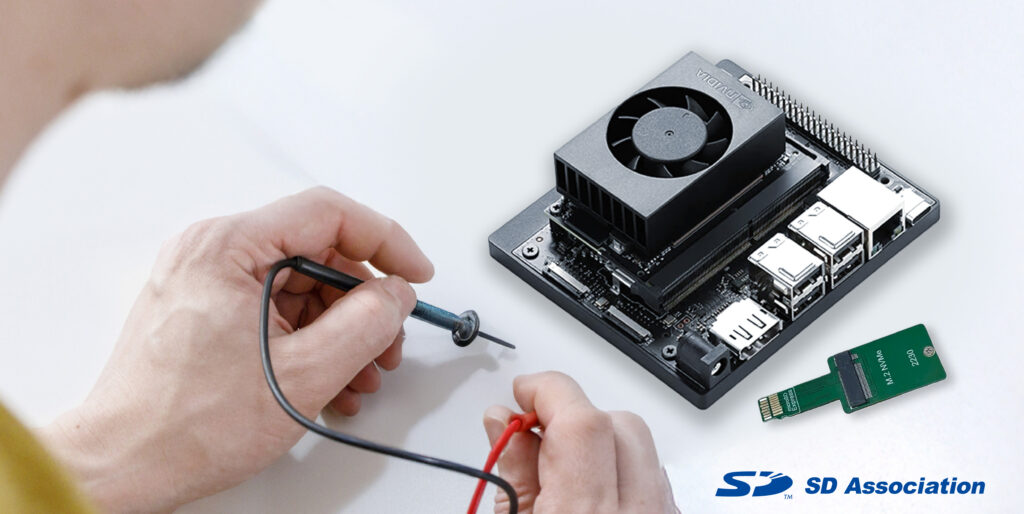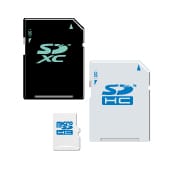The SD Express Student Competition, hosted by the SD Association (SDA), inspired students from top universities around the world to harness the power of microSD Express in real-world AI-at-the-edge applications.
This first annual event reflects SDA’s commitment to supporting the next generation of product designers and engineers by providing access to advanced memory technologies that enable scalable, efficient, and high-speed data processing at the edge.
Participating Institutions and Technical Framework
The SD Express Student Competition brought together 21 participants from prestigious universities around the world, including Hong Kong University of Science and Technology (HKUST), University of California, Davis, Politecnico di Milano, Technion – Israel Institute of Technology, and the Indian Institutes of Technology in Delhi and Bombay. This diverse range of academic representation highlighted the competition’s global reach and its appeal to top-tier engineering and computer science programs.
All competitors worked with a standardized development platform: NVIDIA’s Jetson Orin Nano Super Developer Kit, paired with a microSD Express card using an M.2 adapter.
This configuration provided a consistent foundation for experimentation, enabling students to build AI systems that run locally, boosting speed, privacy, and energy efficiency. The competition encouraged exploration of scalable, responsive architectures for deployment in resource-constrained environments, aligning with the demands of modern embedded systems.
microSD Express: Enabling AI-On-The-Edge Capability
The use of microSD Express provided students with a compact, high-bandwidth memory solution. With transfer speeds up to 985MB/s, microSD Express allows edge devices to handle large datasets, perform real-time inference, and store results efficiently, all within a small form factor. This capability is particularly relevant in edge deployments where space, power, and connectivity are constrained.
Students had freedom to choose their projects; each submission was evaluated based on breadth and depth of use of microSD Express supported by quantitative analysis. Use of new technologies including artificial intelligence/machine learning, augmented reality/virtual reality, robotics or gaming gained higher preference. Other judging criteria included overall functionality, value and impact, creativity and clarity of each submission.
Whether for initial fast uploading of AI algorithms, real-time model uploading, fast reads during the AI inference process, or simply shortening the read/write process of data to release CPU time for real-time pipeline processing of AI operations, the high speed and low latency capabilities of microSD Express with its PCI Express ® and NVM Express™ interface enable new use cases that will hopefully inspire other AI-at-the-edge system developers or enthusiastic new products inventors to consider the microSD Express in their future designs. The student designs clearly demonstrate their usefulness is unlimited.
Competition Outcome and Winning Project
We’re excited to announce the winners of the inaugural SD Express Student Competition.
The top three winning projects received cash prizes of $20,000, $10,000, and $5,000 respectively. First place will have the opportunity to present their project at a major industry trade show. Students also retain full ownership of their intellectual property, allowing them to continue their exploration of microSD Express as they wish.
Educational Impact and Industry Relevance
The SD Express Student Competition underscores the increasing importance of high-performance memory in edge AI system design.
By working directly with microSD Express, students gained practical experience with technology engineered to meet the demands of modern embedded applications.
This also enabled participants to explore real-time data processing, local inference, and efficient storage management, all critical capabilities for edge deployments in sectors such as healthcare, robotics, smart infrastructure, autonomous systems, and industrial IoT.
This initiative reflects the SD Association’s broader mission to bridge academic research and industry practice. By providing access to advanced memory platforms and development tools, SDA empowers emerging engineers to prototype solutions that are technically robust and commercially relevant.
As edge computing continues to scale across industries, the need for fast, scalable, and energy-efficient memory will only intensify. The student-led innovations showcased in this competition represent early-stage concepts that could evolve into deployable technologies or inform future research directions.
Looking Forward
The SD Express Student Competition demonstrates how advanced memory technology can accelerate innovation in edge AI. SDA remains committed to supporting educational programs and competitions that foster innovation, accelerate learning, and demonstrate the real-world potential of SD Express across diverse applications.
To explore the projects, follow #SDExpressStudentCompetition on social media and learn more here.

PCI Express® is a registered trademark of PCI-SIG®. NVM Express™ and NVMe™ are trademarks of NVM Express, Inc.




